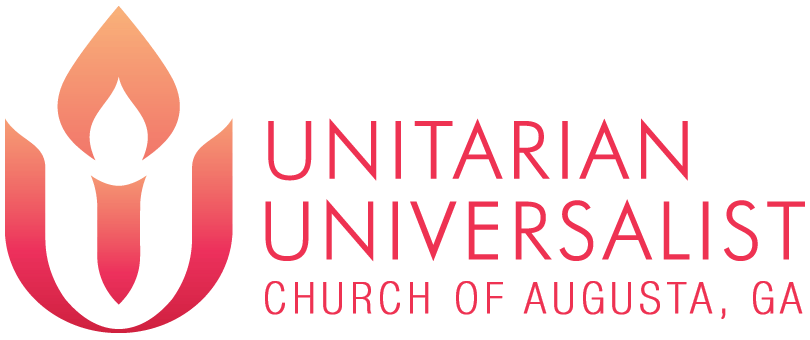What is our relationship with "God" (and other language of reverence)?
We use words like "God," "prayer," "divine," "sacred," "salvation," and/or "spirit" sometimes. Not always. And when we do, they probably don't mean what you think they mean. Some people find deep meaning in these words. Others carry wounds from them. Some just don't connect. All of that is valid.
People come with trauma, but trauma isn't permanent. Lots of folks showing up at UU churches are figuring out their relationship with religious language. Some are ready to explore whether "God" can mean something different than what hurt them. Others need time.
If you're expecting an atheist church—our reputation sometimes—you might be shocked when we sing "Spirit of Life" or say a prayer. Fair enough. You came expecting one thing and found another.
We don't frame the language issues as warnings, we invite "spaciousness and permission". You can translate words into whatever works for you. Let them go entirely. Reclaim them. The message is simple: "You belong here as you are, and we trust you to find the language that speaks to you.
What might we mean by "God"? To what or whom might we be referring?
"God" is just one of a myriad ways to refer to that which is most ultimate and intimate.
Here are just a few other names we might use from time to time:
- Love.
- Goddess.
- That which is most whole, loving, and Good.
- The source of Being.
- Being becoming.
- Mystery beyond all understanding.
- The Spirit of Life and Love.
- The ever creative and created interdependent web of existence - of which we are all a part.
- Nature.
- Change.
- Infinite Universe.
- Still small voice.
- Gaia.
- And for some, including our Unitarian Christian cousins in Transylvania, there is a personal relationship with the more typical Judeo-Christian God. Yet their God is all loving - again different than the judgmental God symbol used to harm so many of us.
In addition, there are also a variety of theologies about God which are more inclusive than you may be used to. "Pantheism" means everything is god. "Panentheism" means everything is God and God is separate. Unitarians historically believed in one God separate from Jesus and the Holy Spirit - some of our ancestors might have been called anti-trinitarian. Meanwhile, our Universalist ancestors may or may not have been Trinitarian. Both ideas are welcome now as long as they point us all toward Love.
"God" just happens to be shorthand for a whole bunch of folks, including folks in our congregation, for all these complex intersecting concepts. All of which remind us we're part of something grand and awesome and wonderful; and yes, sometimes awe-full. God, by any name, is a sign post which reminds us to be humble in the face of how immensely huge and complex life and the universe are. A symbol that attempts to point us toward something otherwise inexplicable. As Dr. Neil deGrasse Tyson says, "the universe is under no obligation to make sense to you." And yet, since reason is indeed an important part of our heritage, we have the freedom - and perhaps even responsibility - to explore God with curiosity and wonder as we have experienced them/it/her/him. And make meaning of it all.
As Unitarian Universalists, we affirm that we are an integral part of the whole and holy interdependent web of all existence - as amazing and terrible as it sometimes may be. Because of that interdependence, everything we do as individuals impacts the whole. We may have little control over the ongoing motion of the Universe, AND we have a creative role to play. We have agency. Because it is all Divine - we are Divine.
All of who you are is Divine.
More resources about "God" from the UUA
Unitarian Universalist Views of God
